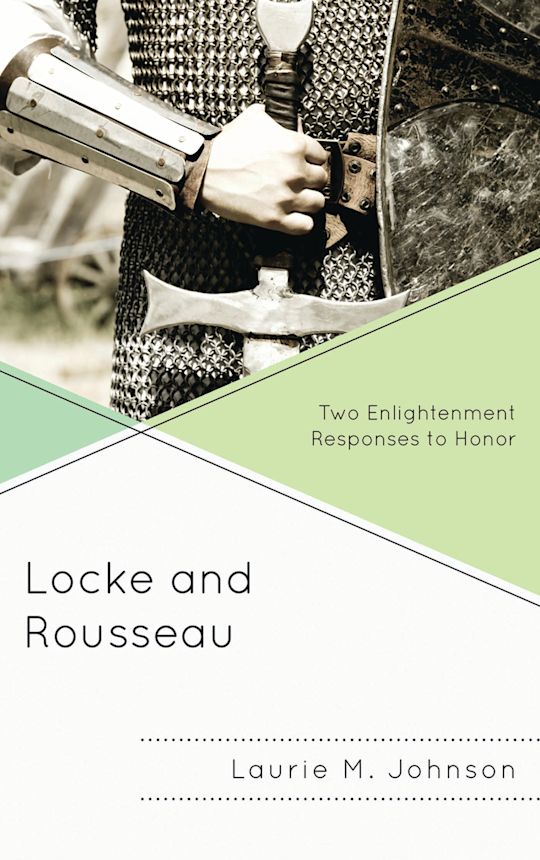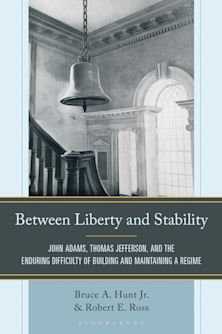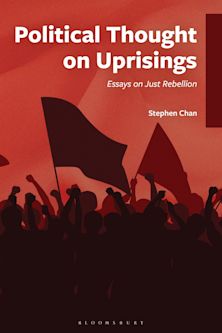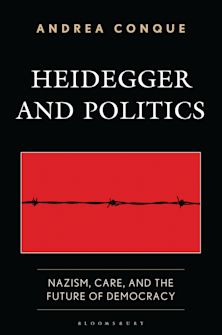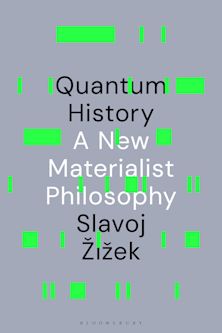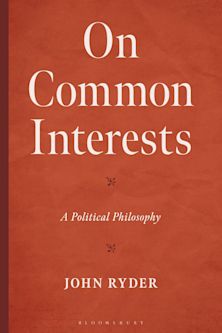- Home
- ACADEMIC
- Politics & International Relations
- Political Theory and Philosophy
- Locke and Rousseau
You must sign in to add this item to your wishlist. Please sign in or create an account
Description
Laurie Johnson investigates two Enlightenment-era reactions to honor in Locke and Rousseau. She provides an in-depth analysis of how political philosophers John Locke and Jean-Jacques Rousseau react differently to the place and importance of honor in society. Locke continues the trend of rejecting honor as a means of achieving order and justice in society, preferring instead the modern motivation of rational self-interest. Johnson explores the possibility of an honor code that is compatible with Lockean liberalism, but also points out the problems inherent in such a project. She then turns to Rousseau, whose reaction to Enlightenment ideas reveals our own “divided mood.” Rousseau’s worries and ambivalence about honor are our worries and ambivalence, and his failed attempt to revise honor in a way that works within the modern system highlights how difficult any project to resurrect the value of honor will be. This book will interest anyone who wonders what happened to honor in our world today, including students of communitarianism. Johnson warns us that we cannot simply look to the past, to the ideals of Locke or other Enlightenment thinkers such as the American founders, for answers to our current family, social, and economic problems, because our problems at least partly stem from Enlightenment liberal thought. Instead we must fully recognize this connection before we can start to formulate a definition of honor that can work for us today.
Table of Contents
Chapter Two: Honor and Education
Chapter Three: On Women, Family and Equality
Chapter Four: The Source of and Solution to Religious Conflict
Chapter Five: Liberalism’s Economic Man
Chapter Six: Rousseau’s Lament for Honor
Chapter Seven: Emile and Sophie: Modern Honor?
Product details
| Published | 26 Apr 2012 |
|---|---|
| Format | Ebook (Epub & Mobi) |
| Edition | 1st |
| Extent | 214 |
| ISBN | 9780739147894 |
| Imprint | Lexington Books |
| Publisher | Bloomsbury Publishing |
About the contributors
Reviews
-
Anyone who wants to understand the modern liberal denigration of honor and the possible recovery of honor in our liberal world must read Laurie Johnson’s book. Her argumentation is clear, incisive, and animated by a spirited love of honor.
Larry Arnhart, Northern Illinois University
-
Dr. Johnson’s Locke and Rousseau: Two Enlightenment Responses to Honor is a classic case of how we can use political philosophy to investigate one of the major challenges of today—how to have honor in a liberal society. With this text, Dr. Johnson has given us a comprehensive background to the modern problem of honor in a liberal society.
Mark Griffith, University of West Alabama
-
Laurie Johnson has already established herself as an important voice in the debate over the meaning and value of modern liberalism. With this book, she continues to show us why we must focus on the concept of honor as a guiding thread in our political tradition. As she ably shows, modern liberalism’s attempt to remove honor from political life has made it difficult for us to cultivate the civic virtues that make a flourishing community possible.
Michael P. Krom, Saint Vincent College
-
In this clear, accessible book, Johnson (Kansas State Univ.) explores the decline of honor in early modern political thought. Expanding the argument of her previous work, Thomas Hobbes: Turning Point for Honor (CH, Nov'09, 47-1683), Johnson shows how Locke and Rousseau extend Hobbes's assault on aristocratic notions of honor while attempting to develop a new type of honor for individuals committed to equality. According to Johnson, Locke follows Hobbes in rejecting honor by questioning the naturalness of social position, weakening religious conviction, and replacing duty with privatized self-interest. Rousseau joins Locke in challenging the "pride and destructive vanity" of aristocratic honor, yet seeks to recover the heroic sense of self-sacrifice that is deflated by Lockean liberalism. Yet Rousseau relies on medieval notions of chivalry that are at odds with modern commitments to gender equality. The central question of Johnson's study is this: "Can liberalism be made compatible with any type of honor code?" Although she hints at some possible answers, she does not solve this riddle here. Instead she carefully traces the decline of aristocratic honor and the difficulty of finding a replacement in the modern world. Summing Up: Recommended.
Choice Reviews









